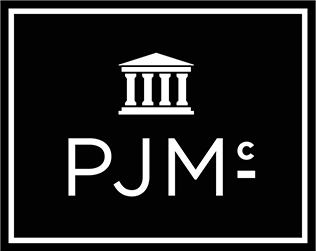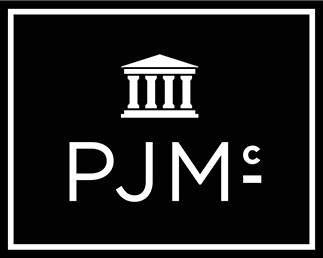Facing a court-martial can be an overwhelming experience, filled with uncertainty and stress. Understanding what to expect and how to prepare can make a significant difference in the outcome. This guide aims to provide comprehensive information on the court-martial process, the rights and protections available to the accused, and practical steps for preparation and post-trial considerations.
Understanding the Basics of a Court-Martial
Types of Court-Martial
There are three primary types of court-martials: Summary, Special, and General. Each type varies in terms of formality, severity of offenses, and potential punishments. A Summary Court-Martial is the least formal and is designed for minor offenses. It involves a single officer who acts as the judge and jury, and the proceedings are relatively quick. This type of court-martial can result in limited punishments, such as confinement for up to 30 days or reduction in rank.
A Special Court-Martial is more akin to a civilian misdemeanor court and deals with intermediate-level offenses. It involves a military judge and a panel of at least three members. The accused can face more severe punishments, including confinement for up to one year, reduction in rank, and forfeiture of pay. The highest level, the General Court-Martial, handles the most serious offenses, comparable to felony charges in civilian courts. This type involves a military judge and a panel of at least five members, with the potential for severe punishments, including lengthy confinement and dishonorable discharge.
Jurisdiction and Authority
Understanding who can convene a court-martial and the applicable laws is crucial. Commanding officers and higher authorities have the power to convene a court-martial. This authority is granted by the Uniform Code of Military Justice (UCMJ) and the Manual for Courts-Martial (MCM). The UCMJ is a federal law that establishes the legal framework for military justice, while the MCM provides detailed procedures for conducting court-martials.
The jurisdiction of a court-martial extends to all active-duty military personnel, reservists, and, in some cases, retired personnel. It covers a wide range of offenses, from minor infractions to serious crimes. Understanding the specific charges and the authority of the court-martial convening authority can help in preparing a robust defense strategy.
The Court-Martial Process
Pre-Trial Procedures
The pre-trial phase involves several critical steps, starting with the investigation and charges. An Article 32 investigation, similar to a civilian grand jury, is conducted to determine whether there is enough evidence to proceed with a court-martial. If the investigation finds sufficient evidence, charges are preferred, and the accused is formally notified.
Legal representation is a fundamental right during this phase. The accused has the right to military defense counsel at no cost and can also hire a civilian defense attorney for additional support. Pre-trial motions play a significant role in shaping the trial. Common motions include suppression of evidence, dismissal of charges, and requests for expert witnesses. These motions can significantly impact the trial's outcome, making it essential to have skilled legal representation.
Trial Procedures
The trial phase begins with the selection of members, akin to jury selection in civilian courts. The voir dire process involves questioning potential panel members to ensure impartiality. Both the defense and prosecution can challenge and dismiss potential members to form an unbiased panel.
The presentation of evidence follows, governed by strict rules of evidence. Both sides present their case, including witness testimony, documents, and physical evidence. The defense has the opportunity to cross-examine prosecution witnesses and present its own evidence. After the evidence is presented, the panel deliberates to reach a verdict. The decision is announced in open court, and if the accused is found guilty, the sentencing phase begins immediately.
Rights and Protections for the Accused
Right to Counsel
One of the most critical rights for the accused is the right to counsel. Military defense counsel is provided at no cost, ensuring that every service member has access to legal representation. These attorneys are experienced in military law and can provide valuable guidance throughout the court-martial process.
In addition to military defense counsel, the accused has the option to hire a civilian defense attorney. This can provide additional expertise and resources, particularly in complex cases. Civilian attorneys can work alongside military counsel to develop a comprehensive defense strategy, ensuring the best possible outcome.
Rights During Trial
Several rights protect the accused during the trial to ensure fairness and due process. The right to remain silent is a fundamental protection against self-incrimination. The accused cannot be compelled to testify, and their silence cannot be used against them.
The right to a fair trial is paramount, ensuring impartiality and due process. This includes the right to challenge biased panel members, present evidence, and cross-examine witnesses. If the trial results in a conviction, the accused has the right to appeal the verdict or sentence. The appellate process provides an opportunity to challenge legal errors, insufficient evidence, or other issues that may have affected the trial's outcome.
Preparing for a Court-Martial
Gathering Evidence
Effective preparation involves gathering and organizing evidence to support the defense. This includes collecting documentation such as service records, communications, and other relevant documents. Thorough documentation can provide critical context and support the defense's narrative.
Witness preparation is another essential aspect. Identifying and preparing witnesses for testimony can significantly impact the trial. This includes conducting interviews, reviewing statements, and preparing witnesses for cross-examination. Expert witnesses can also play a crucial role, providing specialized testimony that supports the defense's case.
Building a Defense Strategy
Developing a robust defense strategy starts with understanding the charges and potential defenses. Analyzing the specific allegations and the evidence against the accused is critical. This includes identifying weaknesses in the prosecution's case and developing counterarguments.
Crafting a compelling narrative is essential for presenting the defense's case to the court. This involves organizing evidence and testimony into a coherent story that supports the defense's arguments. Conducting mock trials can be an effective way to prepare for the actual trial. These practice sessions help identify potential issues and refine the defense strategy, ensuring the best possible presentation in court.
Post-Trial Considerations
Sentencing and Punishment
If the accused is found guilty, the sentencing phase determines the punishment. Possible sentences include confinement, discharge, reduction in rank, and fines. The severity of the punishment depends on the offense and the circumstances of the case.
Mitigation and clemency are options for seeking reduced sentences or relief from higher authorities. This can involve presenting evidence of good character, service records, and other factors that may warrant leniency. Clemency requests can be made to the convening authority or higher military officials, providing an opportunity for reduced punishment.
Appeal Process
The appeal process provides a mechanism for challenging the verdict or sentence. Grounds for appeal include legal errors, insufficient evidence, and other issues that may have affected the trial's outcome. The appellate courts, including the Court of Criminal Appeals and the Court of Appeals for the Armed Forces, review these appeals.
Post-conviction relief options are available after the appellate process. This can include seeking a new trial, clemency, or other forms of relief. Understanding the appeal process and post-conviction options is crucial for those seeking to challenge their conviction or sentence.
Law Office of Patrick J. McLain, PLLC
Navigating a court-martial can be a daunting experience, but understanding the process and preparing effectively can make a significant difference. From understanding the types of court-martials and their procedures to knowing your rights and building a robust defense strategy, this guide provides valuable insights for those facing a court-martial.
If you or a loved one is facing a court-martial in Dallas, TX, the Law Office of Patrick J. McLain, PLLC, is here to help. Our experienced team specializes in criminal defense and military law, providing the expertise and support you need. today to schedule a consultation and learn how we can assist you in navigating the court-martial process.





